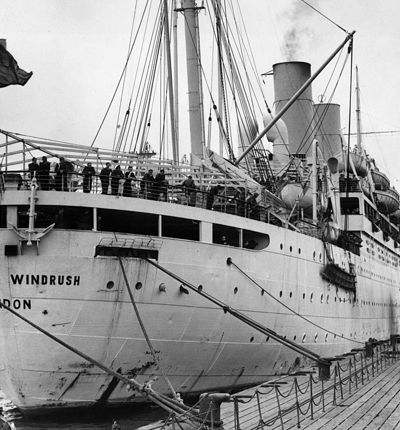
The Windrush generation
We have been helping members of the Windrush generation obtain justice since 2018
The Windrush Scandal first came to the public's attention in 2017, as it emerged that thousands of people had been denied their legal rights and forced into crisis because they were unable to prove their right to live the UK, through no fault of their own.
The group of people affected became known as the Windrush Generation, named after HMT Empire Windrush, which arrived in the UK in 1948 bringing hundreds of passengers from Jamaica, travelling to help re-build post-war Britain.
The Windrush Generation is not limited to those from the Caribbean, and includes many thousands of people, from all Commonwealth countries, who travelled to the UK between 1948 and the 1970s, and their children. The Windrush Generation are British people, who held CUKC citizenship (citizens of the UK and Colonies) and who for many years did not require any specific documents to prove their right to live and work in the UK.
However, as a result of the increasing tightening of immigration laws since the 1970s, and particularly following the introduction of the "hostile environment" immigration policies in 2012, many members of the Windrush Generation were forced into crisis as they lost their jobs, access to benefits and public services, were treated as being in the country illegally and, in some cases, were detained or deported.
In 2018 the Government acknowledged the Windrush Scandal and made a commitment to righting the wrongs, including by compensating those who had suffered harm. Despite these clear commitments, many members of the Windrush Generation continue to feel let down by the Government, and report after report shows that the Home Office are being too slow to right the wrongs of the Windrush Scandal.
Since 2018 Leigh Day has been committed to assisting members of the Windrush generation to obtain justice, particularly in relation to compensation. Our work includes:
- Representing around 30 individuals in preparing their applications to the Windrush Compensation Scheme. The cases are funded under legal aid or pro bono.
- Successfully challenging a decision refusing a client the right to return from Jamaica to the UK, to re-join her family. She has now been granted Indefinite Leave to Remain as a Returning Resident under the Windrush Scheme.
- Successfully challenging the delay in determining our client’s application for Indefinite Leave to Remain under the Windrush Scheme.
- Successfully appealing the refusal of an application to the Windrush Compensation Scheme, resulting in an overturning of the decision and a substantial award of compensation.
- Successfully obtaining substantial interim payments under the Urgent and Exceptional Payment Scheme for two clients, including one client who was at risk of eviction having lost his job.
- Successfully obtaining preliminary awards of £10,000 for numerous clients under the Windrush Compensation Scheme.
As well as our case work, Leigh Day is also committed to holding the Government to account over the Windrush Scandal, including through making detailed submissions to the Government’s consultation on the Windrush Compensation Scheme and responding to parliamentary calls for evidence.
The Windrush Compensation scheme five years on
Five years on from the introduction of the Windrush Compensation Scheme, Leigh Day head of immigration and asylum law Jacqueline McKenzie details her thoughts on issues with the scheme and how to improve it.
Related content

Windrush Generation lawyer Jacqueline McKenzie calls for Home Secretary to launch statutory inquiry into the Windrush Scandal
Human rights lawyer Jacqueline McKenzie has called on the Home Secretary Yvette Cooper to establish a statutory public inquiry into the Windrush Scandal.

Court of Appeal rules Home Office must look again at Windrush daughter Jeanell Hippolyte’s case
The Court of Appeal has ruled that the Home Office must reconsider the case of Windrush daughter Jeanell Hippolyte whose application to stay in the UK it had refused because she did not fit its strict eligibility criteria.





